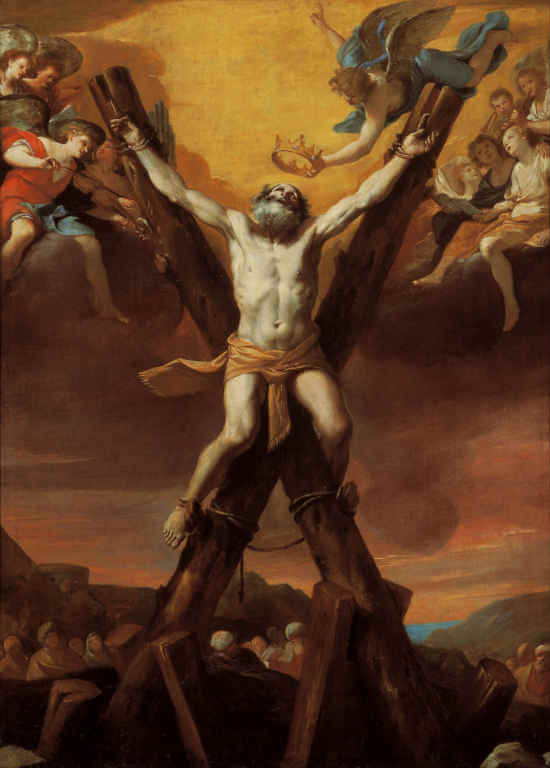St Andrew the Apostle
St. Andrew (or Andreas) the Apostle
Andrew, Peter’s brother, and John were the first disciples to follow the Lord. With tender delicacy the Gospel (John 1:35-42) describes their first meeting with Jesus. Andrew did not belong to the inner circle of the apostles, Peter, James and John, and the evangelists narrate nothing extraordinary about him (John 6:8); but tradition (resting on apocrpyhal Acts) extols his great love of the Cross and of the Savior; and the Church distinguishes him both in the Mass (his name occurs in the Canon and in the Libera since the time of Pope St. Gregory I who had a special devotion to him) and in the Breviary.

The story of his martyrdom rests on the apocryphal Acts which lack historical foundation. The pagan judge exhorted him to sacrifice to the gods. Andrew replied: “I sacrifice daily to almighty God, the one and true God. Not the flesh of oxen and the blood of goats do I offer, but the unspotted Lamb upon the altar. All the faithful partake of His flesh, yet the Lamb remains unharmed and living.” Angered by the reply, Aegeas commanded him to be thrown into prison. With little difficulty the people would have freed him, but Andrew personally calmed the mob and earnestly entreated them to desist, as he was hastening toward an ardently desired crown of martyrdom.
When Andrew was led to the place of martyrdom, on beholding the cross from a distance he cried out: “O good Cross, so long desired and now set up for my longing soul I confident and rejoicing come to you; exultingly receive me, a disciple of Him who hung on you.” Forthwith he was nailed to the cross. For two days he hung there alive, unceasingly proclaiming the doctrine of Christ until he passed on to Him whose likeness in death he had so vehemently desired. –The legendary account of our saint’s martyrdom has this value: it presents to us the mysticism of the Cross of later times.
Excerpted from The Church’s Year of Grace, Pius Parsch.